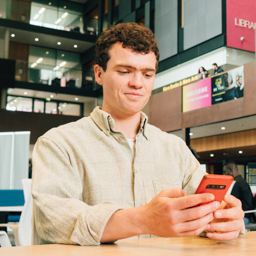I took a bit of time between undergrad and deciding to take a post-grad qualification
I chose this course at Brookes because it was very vocational-orientated. Being a CIEEM-accredited course meant that it had a practical application and the way it was taught that looks like it will be useful going forward to getting a job outside of academia.
There are good opportunities on the course
To go out into the field. That is one of the real strengths from the course. We were exposed to conservation in the real world, not only through habitat and species identification, but also current habitat management and restoration best practices. This gave us first hand experience of the challenges and issues that exist in the world of conservation.
We’re a close knit cohort
There were sixteen of us on the course and made it a fun and productive student experience. We were able to build good relationships with the course lecturing staff, enabling us to engage openly in the seminars and so get the most out of the  contact hours that we had. The lecturers were enthusiastic and knowledgeable about their areas of expertise and, importantly, aware of what it is like to be a student.
contact hours that we had. The lecturers were enthusiastic and knowledgeable about their areas of expertise and, importantly, aware of what it is like to be a student.
That's how I got the job that I am doing now
As part of the coursework, we were required to approach people outside of the university, make connections, and create relationships with conservation organisations. It’s really useful to have the confidence to go and have a conversation with an organisation. The course helped me get a job working for the Trust for Oxfordshire's Environment (TOE) where I am part of a team that is responsible for delivering effective biodiversity net gain in Oxfordshire and the surrounding counties.
If you have an interest in ecology or the natural world and are thinking about applying but are not sure if you meet some of the admission criteria, my advice would be to give it a go, you never know what could happen and it might be exactly what you are looking for.
